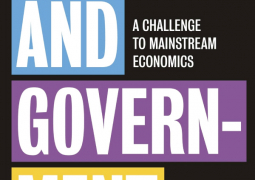
Machiavelli, in book III, chapter 6 of his Discourses, enunciates the principles of political conspiracies. He considers an understanding of them to be of primary importance. I intend to paraphrase his relevant points here, so that readers without access to the original text may have a better understanding of them. He begins with a point he considers self-evident:
There is, on the other hand, no enterprise in which private persons can engage, more dangerous or more rash than is this [conspiracies], for it is both difficult and extremely dangerous in all its stages. Whence it comes about that, though many conspiracies have been attempted, very few have attained the desired end…There is, in fact, a golden saying voiced by Cornelius Tacitus, who says that men have to respect the past but submit to the present, and, while they should be desirous of having good princes, should put up with them of whatever sort they may turn out to be.
Conspiracies are dangerous and usually fail; even a dolt as a ruler is usually better than chaos, and men should think twice about plotting to remove an imbecile from the throne. Here, then, are Machiavelli’s observations on conspiracies.
- Conspiracies may be formed against one of two targets: one’s homeland, or against a specific ruler.
- A ruler should try to avoid becoming a focus of hatred, for it is this which triggers most conspiracies. “A prince, therefore, should avoid incurring these personal reproaches, and since what he has to do in order to avoid them has been discussed elsewhere, I shall refrain from discussing it here…”
- Fear or threats may lead men to enter into conspiracies against you:
The threat of bloodshed is more dangerous than is the shedding of blood. To threaten to shed blood is, in fact, extremely dangerous: whereas to shed it is attended with no danger at all, for a dead man cannot contemplate vengeance, and those that remain alive usually leave you to do the contemplating. But a man who has been threatened and sees that he must of necessity either do something or be for it, has been turned into a real menace for the prince, as we shall cite cases presently to show.
- Another cause that makes men enter into conspiracies is “the desire to liberate their fatherland of which a prince has seized possession.”
- In history, it is shown that almost all conspiracies have been made either by men of standing or by men in close proximity to the prince. They are not made by the downtrodden, who are more preoccupied with the daily struggle for survival.
Consequently, since when their lives and property are not at stake, men do not entirely lose their heads, they become cautious when they recognize their weakness, and when they get sick of a prince confine themselves to cursing him, and wait for those of higher standing than they have to avenge them. So that, should one in fact come across somebody of this kind who has attempted such a thing, one should praise his intentions but not his prudence.
- Those who conspire against you may more often be those on whom you conferred favor:A prince, therefore, who wants to guard against conspiracies, should fear those on whom he has conferred excessive favors more than those to whom he has done excessive injury. For the latter lack opportunity, whereas the former abound in it, and the desire is the same in both cases; for the desire to rule is as great as, or greater than, is the desire for vengeance.
- Buffers must be created against the ruler and his friends:
Consequently princes should confer on their friends an authority of such magnitude that between it and that of the prince there remains a certain interval, and between the two, something else to be desired.
- Conspiracies, to be successful, must pass through all three stages (initiation, the plot itself, and the period after the plot). Conspiracies fail because so few can navigate all three stages successfully. Most plots are revealed and crushed at the outset because of informers:
Now there may be one or two persons whom you can trust, but it is impossible to find such men if you reveal your plans to many people, for the goodwill they bear you must indeed be great if the danger and the fear of punishment is not to outweigh it in their estimation. Men, too, quite frequently make mistakes about the affection another man has for them, nor can you be sure of it unless of it you have previously had experience, and to acquire experience in such a matter is a very risky business.
- Conspirators who wish to succeed should keep silent about their intentions until the last possible moment:
The first, the safest and, to tell the truth, the only [remedy against being discovered], is not to allow the [fellow] conspirators time to give information against you, and to tell them of your plan only when you are ready to act, and not before.
- Only one other man should generally be trusted with information about a conspiracy. Confiding in any more than one other person tremendously increases the risk of being discovered:
A plot, then, should never be divulged unless one is driven to it and it is ripe for execution; and if you, perforce, have to divulge it, it should be told to but one other person, and this is a man of whom you have had very considerable experience, or else one who is actuated by the same motives as you are.
- Changes of plans can be fatal to a conspiracy. It is usually better to keep to an old plan than to try to configure a new one:
I would here point out, therefore, that nothing so perturbs and interferes with anything undertaken by men as does their having suddenly and without due notice to change their plan and to give up that laid down at the start…So that it is much better to carry out the original plan, even if one sees in it certain inconveniences, then it is to cancel it and thereby to involve oneself in a host of inconveniences.
- Human indecision, irresolution, cowardice, or ineptitude can doom a conspiracy. It is very easy to make plans and plot strategies, but another thing entirely to follow through with them. When the time for action comes, not every man is up to the task:
Hence men should be chosen who have had experience in doing such deeds, and one should entrust them to no one else, brave as he may be thought to be. For when it comes to doing big things of which a man has no previous experience, no one can say for certain what will happen.
- The role of fortune is paramount. Failure can come about through unforseen accidents or other intervening factors.
- There is one great danger after a successful conspiracy has been conducted:
There is but one. It is that someone may be left alive who will avenge the death of the prince. There may, for instance, be brothers or sons or other supporters to whom the principality was expected to come. Survival of those who may wreak vengeance may be due either to your negligence or to the causes mentioned above.
Machiavelli’s recommendation for solving this problem, which he does not spell out specifically, is obvious.
These are the main ideas contained in Machiavelli’s short treatise on conspiracies. In practice they are difficult to organize and keep hidden, and even more difficult to carry through to conclusion; but the wiser course for someone in a position of authority is not to provoke others into forming them in the first place. Vigorous and just leadership that continually measures the pulse of the people and responds accordingly is the best inoculation against such schemes.
Available at Timbooktoo Tel:4494345




